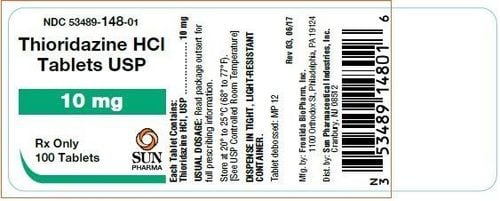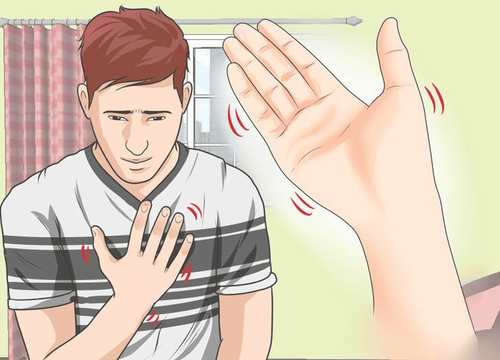This is an automatically translated article.
Depression is a common mental illness today, it greatly affects the emotions and quality of life of patients. Currently, there are many different drugs to treat depression, including Bupropion. So what is Bupropion and how is it used?
1. What does Bupropion do?
What does Bupropion do? Bupropion is a medication used to treat depression that improves mood and increases feelings of well-being. Bupropion works by helping to restore the balance of certain neurotransmitters in a person's brain.

Bupropion được chỉ định trong điều trị bệnh trầm cảm
2. Instructions for using Bupropion for depression
Carefully read the instructions for use of the antidepressant Bupropion before using the drug. The drug is taken orally, with or without food, usually 3 times a day. Patients with stomach upset should take the drug with food. Dose intervals should be at least 6 hours apart or as directed by your doctor to reduce the risk of seizures. Do not take more or less of Bupropion for depression than indicated. Taking more than the recommended dose of bupropion may increase your risk of having a seizure. Do not take more than 150 milligrams at a time and do not take more than 450 milligrams per day.The dose of Bupropion for depression is based on the patient's medical condition and response to treatment. The dose may be increased slowly to limit side effects such as insomnia and convulsions. To avoid difficulty sleeping, patients should not take this medication too close to bedtime and notify their doctor if insomnia has a major impact on their quality of life.
Patients should not stop taking the medicine without consulting a doctor, some symptoms may get worse when stopping the medicine suddenly. The patient's dose should be gradually reduced before stopping completely. It can take 4 weeks or more for people to see the full benefits of Bupropion for depression. Keep taking the medicine as directed by your doctor even if you feel your symptoms are getting better. Tell your doctor if your condition does not improve or even worsens.
MORE: Side effects of antidepressants
3. Side effects of the antidepressant Bupropion
Possible side effects of Bupropion depression medication such as:
Nausea, vomiting; Dry mouth ; Headache; Constipation; Increased sweating; Joint pain; Sore throat ; Blurred vision; There is a strange taste in the mouth; Diarrhea; Dizzy . The depression medication Bupropion can cause an increase in a patient's blood pressure, so measure your blood pressure and report any abnormalities to your doctor immediately. Some other serious side effects of the depression medication Bupropion include:
Severe chest pain; Faint; fast, pounding, or irregular heartbeat; Hearing problems, tinnitus; Severe headache; Mental/mood changes (such as agitation, anxiety, confusion, hallucinations, memory loss); Uncontrollable movements; Weight loss or unusual weight gain; Pain, red eyes, dilated pupils; Vision change. Bupropion can cause seizures. Relatives should call emergency medical immediately when the patient has a seizure and absolutely do not continue to use bupropion.

Mờ mắt là một tác dụng phụ của thuốc điều trị trầm cảm Bupropion
4. Notes when using Bupropion depression drug
Before using Bupropion for depression, if the patient is allergic to this active ingredient and other ingredients in the drug, the patient should inform the doctor to avoid dangerous allergic reactions. Some medical history should be taken into consideration such as:
Epilepsy or risk factors for convulsion (traumatic brain injury, head injury, brain tumor, cerebrovascular malformation); Use or addiction to alcohol; Dependence on certain drugs (such as benzodiazepines, opioid pain relievers, cocaine, and stimulants); Diabetes; Cardiovascular disease (such as congestive heart failure, high blood pressure, myocardial infarction); liver and kidney problems (such as cirrhosis); Personal or family history of psychiatric disorders (eg, bipolar disorder, mania); Personal or family history of suicidal ideation or attempt; Individuals or families with a history of glaucoma (angle-closure glaucoma). Bupropion should not be used if the patient has been using drugs regularly but stops suddenly such as tranquilizers (including benzodiazepines), anticonvulsants or alcohol... because the risk of convulsions will be increased. .
Bupropion can cause dizziness or affect the patient's coordination. Limit factors that aggravate this problem such as alcohol, marijuana. At the same time, do not do jobs that require alertness, coordinate movements smoothly when the patient feels that the performance is not safe. Older adults are more sensitive to the side effects of bupropion, especially dizziness and memory loss.
Pregnant women only use Bupropion in cases of absolute necessity. However, mental disorders (such as depression, seasonal depression, bipolar disorder) if left untreated can lead to serious complications, so do not stop this antidepressant unless directed by Doctor.
Patients with depression who plan to become pregnant, are pregnant, or think they may be pregnant should immediately discuss with their doctor the benefits and risks of using Bupropion during pregnancy. Bupropion can pass into breast milk and cause unwanted effects on a nursing infant, consult your doctor before breast-feeding.

Phụ nữ mang thai chỉ được uống thuốc khi được bác sĩ kê đơn
5. Drug interactions of the antidepressant Bupropion
Some products that may interact with Bupropion include:
Codeine ; Pimozide; Tamoxifen ; Thioridazine. Using MAO inhibitors with Bupropion can cause serious (possibly fatal) drug interactions. Therefore, do not use MAO inhibitors (isocarboxazid, linezolid, moclobemide, phenelzine, procarbazine, rasagiline, safinamide, selegiline, tranylcypromine) at the same time, before 2 weeks or after 2 weeks of bupropion therapy.
Bupropion may interfere with certain laboratory tests (including Parkinson's disease brain studies, urine amphetamine quantification) and cause erroneous results. Symptoms of an overdose of Bupropion include: convulsions, hallucinations, fast or slow heart rate, loss of consciousness. Psychiatric examination and routine tests are performed to monitor patient progress or detect side effects.
To ensure safety and monitor the condition of the disease after using the drug, patients should perform periodic health check-ups or follow-up appointments as prescribed by the doctor. At Vinmec International General Hospital, there are now a full range of tests and clinical examinations to check the patient's health status, monitor the time after using the drug of the patient. The entire examination and testing process at Vinmec is carried out by a team of experienced and qualified medical doctors and modern medical facilities, so it can give accurate results, helping doctors advice on the best treatment.
Please dial HOTLINE for more information or register for an appointment HERE. Download MyVinmec app to make appointments faster and to manage your bookings easily.
Reference source: webmd.com













